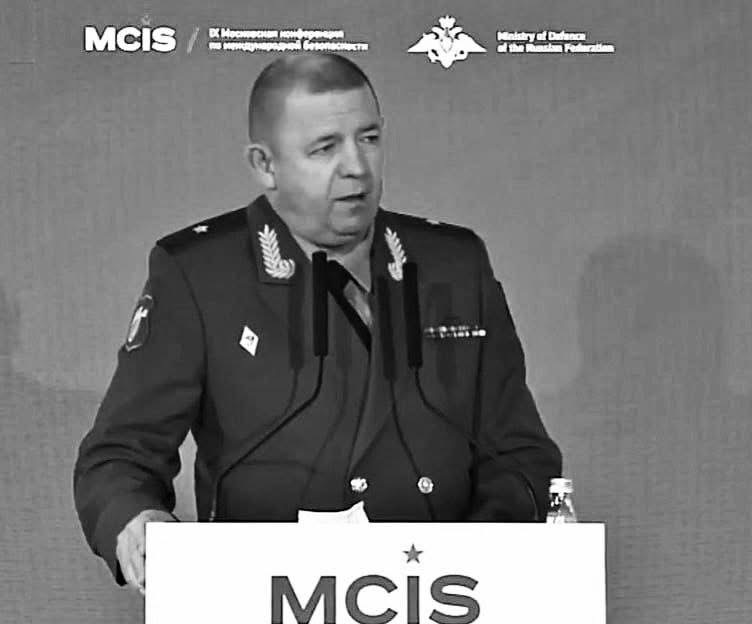Russian Major General Yaroslav Moskalik, the Deputy Chief of the Main Operations Directorate of the General Staff, was killed in a car bomb explosion in Balashikha, near Moscow, today. The deadly attack, deemed a “terrorist act” by Russian authorities, coincided with the arrival of U.S. envoy Steve Witkoff in Moscow for crucial peace talks with Vladimir Putin.
At approximately 10:40 a.m. EEST, an explosive device packed with shrapnel detonated as Moskalik walked past a parked car. This represents the second high-profile assassination of a senior Russian general in just four months, following a similar attack in December 2024. With the timing positioned just hours before Witkoff’s meeting with Putin to finalize a potential peace agreement, Russian officials and war bloggers have quickly pointed fingers at Ukraine, suggesting a deliberate attempt to disrupt diplomatic negotiations.

General Yaroslav Moskalik
Peace Talks in Jeopardy:
Witkoff’s visit, his fourth since January, was aimed at brokering a peace deal to resolve the ongoing Ukraine conflict. This assassination poses a significant threat to the progress of these negotiations.
Escalating Tensions:
The attack on such a high-ranking official during a period of diplomatic engagement could trigger a severe Russian response, threatening further destabilization in the region.
Global Reaction:
As the international community watches closely, this act may be perceived as an attempt to sabotage peace efforts, potentially swaying global support away from Ukraine.
Why This Matters:
Major General Moskalik, a key player in Russia’s military strategy with a history of involvement in significant negotiations like the 2015 Normandy Format talks, has now become a martyr during a critical moment. This raises the question: Is this a calculated move by Ukraine to avoid making concessions, especially after Donald Trump’s recent assertion that Crimea “will remain with Russia”? Or are there deeper complexities at play in this high-stakes geopolitical chess game?
What’s Next?
Best Case: The peace talks proceed despite the assassination, with both Russia and Ukraine recommitting to finding a peaceful resolution.
Worst Case: Russia may choose to retaliate, escalating the conflict further and crushing hopes for a diplomatic solution.
Middle Ground: Negotiations could stall, with escalating mistrust and blame-shifting among all parties involved.
As the world holds its breath, the outcome of this incident could reshape the geopolitical landscape and influence the future of peace in the region.





